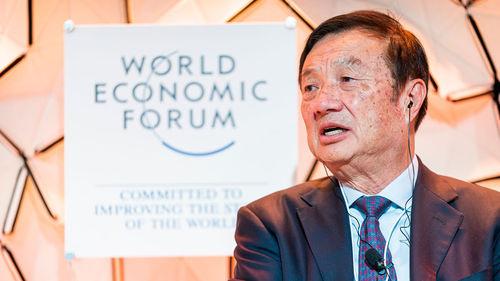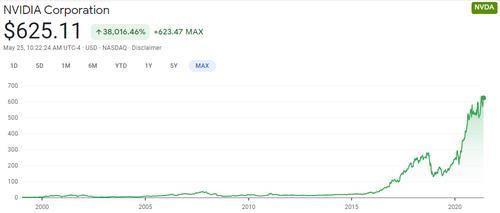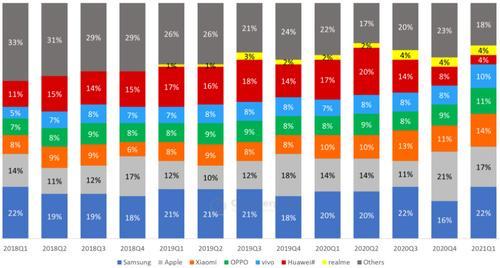Huawei is assembling a crack squad of software commandos who will join forces with Russia; use the scalpels of their expertise to slaughter the pigs of US sanctions; and plant open-source roots in Africa, Asia and Europe while keeping the Americans out of China.
Or something like that.
Company founder Ren Zhengfei is back with his latest missive to employees. Seen by Light Reading, it is about as bizarro as Ren's pronouncements get – as if a cyber literate Ernst Stavro Blofeld hooked up with Williams Burroughs and rewrote Confucius.
Even that trio would struggle to reproduce lines such as: "We also welcome PhDs who don't have the right major, as long as they're willing to take their scalpels to kill pigs with us." Or even: "Huawei's culture is single-stranded, like the DNA of a bdelloid rotifer." When was the last time you heard Sundar Pichai tell Google's employees they are "commando teams" somersaulting into global hotspots? Ren is the flying trapeze act in the circus of the company memo. Sometimes, it is just hard to make him out (especially when farm animals become part of the show).

Huawei Founder Ren Zhengfei sounds increasingly menacing before tweaks. (Source: World Economic Forum on Flickr CC2.0)
His more daring, Blofeldian maneuvers may have caused some alarm. In the version of the memo originally cited by Reuters, he is quoted saying: "Once we dominate Europe, the Asia Pacific and Africa, if US standards don't match ours, and we can't enter the US, then the US can't enter our territory [the italics are ours]."
He sounds less menacing in the version subsequently obtained by Light Reading: "Once we have gained a foothold in Europe, the Asia Pacific and Africa, if US standards do not converge with ours, although we will be unable to access the US market, US companies will not be able to access ours, either [again, the italics are ours]."
Software is the new religion
The overarching message this time round is that Huawei's future lies in software rather than the network kit and gadgetry that have made it a company with $137 billion in annual sales. Ren's rationale seems to be that software is a more impregnable fortress than hardware, which US officials have successfully overrun. Sanctions have now cut Huawei off from its most important hardware suppliers. A software blockade will be harder to enforce.
Not impossible, though. One reason Huawei's smartphone sales have plummeted is that it can no longer make use of the Google software apps that are such popular features of any Android handset. Because Android is an "open source" platform, seemingly controlled by no one, the skeleton of it is still available to Huawei. That partly explains Ren's current enthusiasm for open source. But an Android phone without Google's apps is like a crème brûlée without the brûlée. Huawei needs to start baking from scratch.
It is doing that with HarmonyOS, a forked version of Android that is set for a smartphone release on June 2. Huawei cannot quickly dodge US hardware sanctions because the job of creating an alternative to Applied Materials, a US maker of semiconductor equipment, or TSMC, a Taiwanese chip foundry, would cost billions and take years. In software, the only constraint is the pool of available talent. With its 1.4 billion citizens (or something like that), China has plenty. And if he can't find them at home, Ren is quite happy to shop in other totalitarian states that are philosophically opposed to the US and its old-fashioned ideas about democracy. (See Harmony OS set to debut as Android drops Huawei as partner.)
"Since Russia has accumulated vast experience in the basic research of systems engineering, mathematics, physics, software, materials science, and other such areas, we should enhance our collaboration with them and engage bright minds and supporters," he writes in one of his less madcap moments.
When Huawei published its 2020 annual report in late March, executives boasted that HarmonyOS already had the world's third-largest app ecosystem, with about 2.3 million registered developers worldwide (although only 300,000 of these were outside China, it acknowledged). That is certainly an impressive number for an operating system not yet available on smartphones. A cut of app sales could amount to billions of dollars in future revenues.
There is just one problem with Ren's logic. Software does not float around in a bodyless state like some phantom force or poltergeist. It resides on hardware and might not even reduce the need for that hardware or the cost of it (a trope that has been doing the rounds in the telecom sector ever since the days of network functions virtualization). Anyone who thinks it is a given that value is shifting from hardware to software should take a look at the share price trajectory of Nvidia, a designer of graphical processing units, or even TSMC. Not many pure software companies have done better.
Nvidia's share price trajectory

(Source: Google Finance)
And therein lies the rub for Huawei. Far worse than being cut off from Google was being turned away by TSMC, which stopped selling its cutting-edge chips to Huawei in September. Huawei might be able to replace the Silicon Valley software. It cannot replace the Taiwanese hardware. And that means it cannot make competitive phones – a problem for a company whose brand is rubbish but whose technology measures up to the very best.
Huawei has said it will license HarmonyOS to third parties, which means Samsung et al could make HarmonyOS-based phones. But will anyone bite? Given the backlash against Huawei outside China, it is hard to imagine that many non-Chinese smartphone brands will abandon Android, currently the world's most popular operating system, and swim toward HarmonyOS. Chinese brands like Oppo, Vivo and Xiaomi just might, though. Those companies already use versions of Android minus Google inside China and are rising stars outside Xi's fiefdom.
They are also dependent on US hardware, if Joe Biden really wanted to go full Trump and tighten the screws. Assuming he does not, the issue for Huawei is that a HarmonyOS boom would probably not compensate for the decline of its smartphone business, whose global market share has tumbled from 20% in the summer of 2020 to about 4% between January and March, according to Counterpoint Research.
Global smartphone market share

(Source: Counterpoint Research)
That's because Google does not seem to generate much wonga from anything specifically related to Android. While it does not break out these revenues in its financial statements, a lawyer representing Oracle let slip during a court battle in 2016 that Google had made $31 billion in sales and $22 billion in profit from Android since the operating system's 2008 release. Annualized, that works out at less than $4.5 billion in sales and $3.2 billion in profit.
The figure is likely to be much higher now, but not as high as $75 billion, the amount Huawei made from device sales last year, before the US had really been able to gum up its machinery. Most of Google's revenues still accrue from search – 57% of last year's $182.5 billion – and toppling it there outside China would be like trying to rugby tackle an elephant, as Microsoft has discovered. Apple, the other big beneficiary of an app ecosystem, made $53.8 billion from sales of all services last year. The other $221 billion it recorded in revenues came mainly from hardware.
Dramatic shrinkage
None of this even considers Huawei's $47 billion networks business, which software will not save. "Optimizing" code for hardware is possible, as Ren and his lieutenants argue, but even the best software will not compensate for crappy hardware. "The only way to compensate in software is to use a less sophisticated radio algorithm," said Michael Begley, the head of product line RAN compute for Ericsson, in a recent discussion with Light Reading. "That is effectively what you are saying."
As at the devices business, Huawei needs TSMC's latest chips for its most advanced mobile network products. Denied those by US sanctions, it is relying on stockpiles that will eventually run out. What it needs is a viable alternative to the Taiwanese chipmaker, not more software boffins. But a Chinese foundry with TSMC's credentials is unlikely to materialize for years.
Want to know more about 5G? Check out our dedicated 5G content channel here on Light Reading.
Huawei could always go full software and become like a Chinese version of Altiostar, Mavenir or Parallel Wireless, US companies writing the code that might run on the radio access networks of the future. But these firms will never be as large as Huawei or even Ericsson because they provide only the software (and, remember, software needs boxes). Reinvention as a pure software player, then, would mean dramatic shrinkage.
Its other option would be to forget about phones, network equipment and anything else related to telecom. Instead, it could focus on developing the software used by cars, data centers and organizations in China and African countries that China is buying. Minus the part about neo-colonialism in Africa, and abandoning telecom per se, this was pretty much the strategy Huawei announced in April at an analyst summit in Shenzhen.
It could work, too. The equipment used in many industries is "less reliant on advanced process techniques," Huawei noted in April. Governments in Africa and Eastern Europe who appreciate low prices, not to mention Chinese money and vaccines, may be queuing up for deals. It is doubtful Huawei can offset a telecom hardware decline this way, but its plan for world software domination in cahoots with Russia could make it even scarier to the US. For a company determined to distance itself from the Chinese government, Huawei can sound just as sinister.
